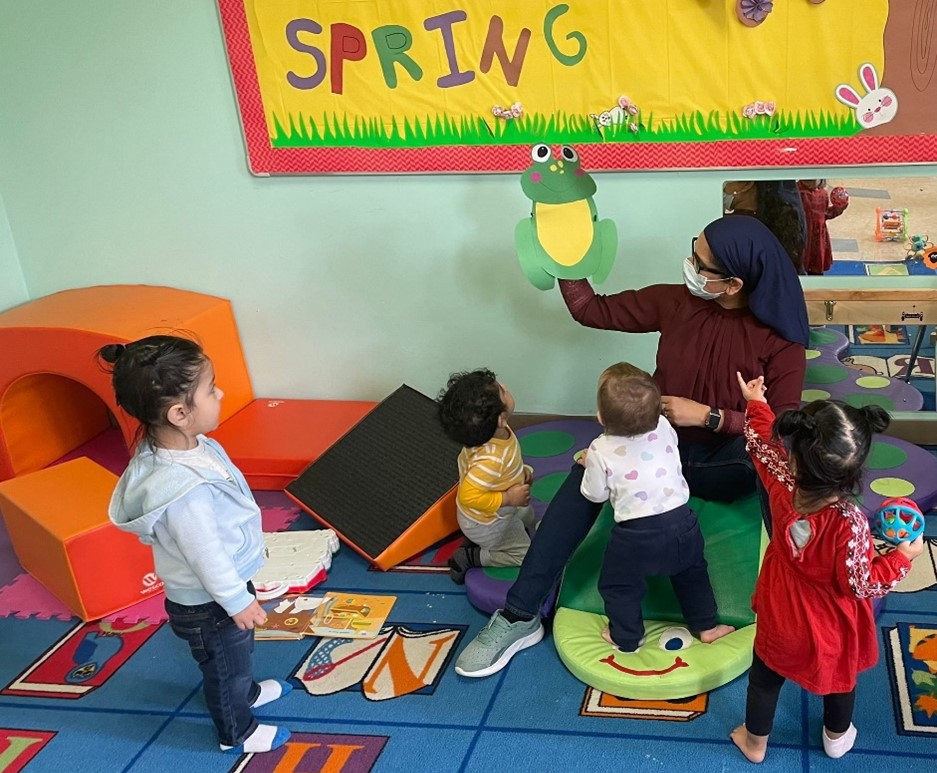
By Dr Anita Soni, School of Education and Dr Abigail Taylor, City-REDI
Introduced in 1999 in the UK, the Sure Start Local Programme established local ‘one-stop shops’, bringing together services, health, parenting support, early learning and childcare and employment support, to support local families with the aim of enhancing the development and life chances of children under 5. The programme focused on supporting children in their earliest years and their parents in the most under-served areas.
The important but unsurprising recent Institute for Fiscal Studies (IFS) report ‘The short- and medium-term impacts of Sure Start on educational outcomes’ presents evidence on academic achievement and special educational needs. A key outcome is that all children who lived within 2.5 kilometres of a Sure Start centre for their first five years performed 0.8 grades better in their GCSEs, regardless of whether those families used the centre. These impacts were much larger for those from the poorest backgrounds and those from non-white backgrounds. By the time they took their GCSEs, effects were six times higher for those eligible for free school meals than for those not eligible for them.
In the current climate, there has been a national surge in requests for Education, Health and Care Plans. Whilst access to a nearby Sure Start centre at early ages increased the likelihood of children being recorded as having a special educational need or disability (SEND) at the age of 5, by 16, the probability of having an Education, Health and Care Plan decreased by 9% (or over 1,000 children a year).
Cutting through to the economic benefits, the IFS note the Sure Start local programme’s benefits in reducing the cost of SEND support for the government, and that for every £1 the government spent on Sure Start, there were benefits to attending children worth £1.09, solely through educational outcomes, and there are many others beyond these.
These positive impacts of Sure Start are entirely driven by children who lived near Sure Start Local Programmes (SSLPs), as much of the extra budget was spent on parental outreach, focused on under-served families, and where local communities inputted to what was needed. Frustratingly, a change in the focus of early years policy in 2010 from the coalition government, towards increasingly expanding funding for subsidised childcare to support parental employment, decreased funding for Sure Start.
Recent research by City-REDI has emphasised the wider importance of place-based policy. Together with the Institute of Employment Studies (IES), City-REDI evaluated Connecting Communities, an innovative place-based employment support pilot commissioned by the West Midlands Combined Authority as part of their devolution deal with central government. Some of the activity would have been supported by SureStart local programmes. Emphasising intensive, personalised, and context-specific support, the programme sought to: build social networks to foster positive behavioural and attitudinal changes towards work; increase employment; and work with local businesses to bolster the recruitment and progression of disadvantaged individuals. The evaluation emphasised how personalised, place-based employment support programmes can be an important mechanism for reaching people with significant barriers to work. Participants became more aware of, and worked towards, employment opportunities. Circumstantial barriers such as childcare, being a young carer, lack of quality roles in desired sector and poor health limited the ability of some participants to progress towards employment.
Several challenges exist with current early years and employment support policy. Employment support policy now involves less place-based early years focus compared to during the Sure Start era. Whilst Sure Start local programmes varied in the priority they attached to activities aiming to improve the employability of parents, promoting the employability of parents was one of the four core Sure Start service targets from 2003-04 to 2005-06. Key to this was how Sure Start involved collaboration between the Department for Children, Schools and Families and the Department for Work and Pensions. The Department for Children, Schools and Families no longer exists, being replaced by the Department for Education. Recent Department for Education efforts to increase parents’ participation in the labour market, have focused on the announcement in 2023 of a significant extension to government-funded entitlements for early years education and childcare in England.
Not only is there a worsening shortage of childcare places, but combined authorities and local authorities are currently constrained by shortages in funding in how they can develop innovative approaches to enable communities to drive outcomes. Over the last decade there has a been proliferation of short-term funding and a lack of long-term intensive, holistic programmes.
Current renewed policy interest in integrated family support programmes to support children’s outcomes, starting in the very earliest days of life, has led to the recent introduction of Family Hubs. These need to be informed by the communities who use them and focus on under-served families to ensure real impact and results, like those experienced by the families who benefitted from Sure Start local programmes.
- Find out more about Dr Anita Soni
- Find out more about Dr Abigail Taylor
- Find out more about City-REDI
- Back to Social Sciences Birmingham
The views and opinions expressed in this article are those of the author and do not necessarily reflect the official policy or position of the University of Birmingham.
